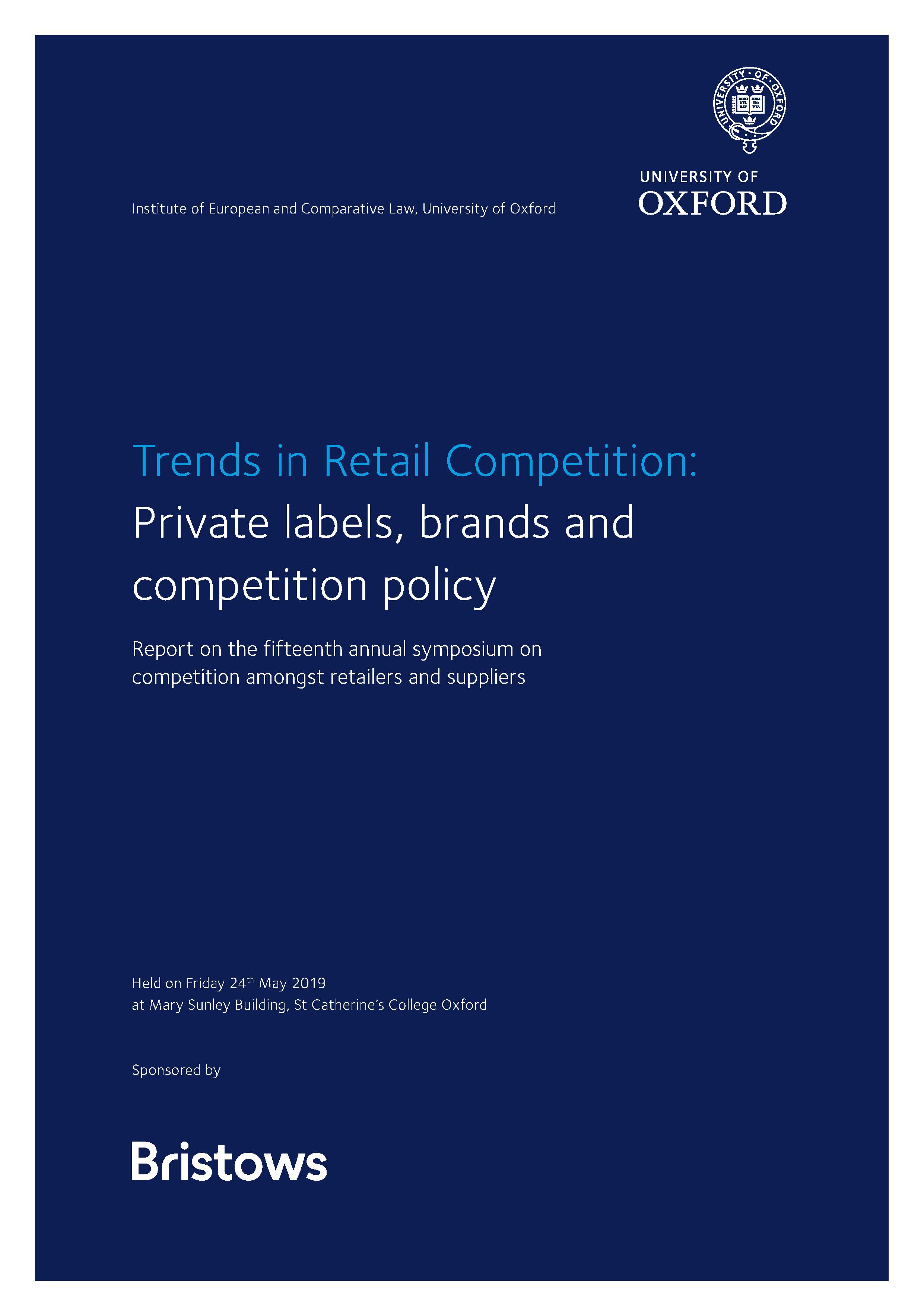Report of the 2019 Symposium on Trends in Retail Competition

The symposium opened with three presentations covering the assessment of retail mergers by competition authorities (including the CMA’s three-step approach and the GUPPI formula), a perspective of the recent Asda/J Sainsbury merger decision and an assessment of the competition effects of European buying alliances and where the borderlines are likely to lie.
The session on unfair trading practices (UTPs) comprised two presentations. In the first, a Norwegian academic looked at how market power and UTPs tend to be assessed and what can be learned from taking a consumer behavioural perspective. In the second, a legal practitioner evaluated the regulation of UTPs, the barriers to enforcement from both the supplier and buyer sides, and the considerations required for an effective enforcement regime.
A speaker from the European Commission highlighted the increased focus on vertical restraints in competition enforcement, outlined the key findings from the e-commerce sector inquiry and described the enforcement activity that had taken place over the last two years, including the Guess decision. His overview of the consultation on the Vertical Block Exemption Regulation (VBER) led into a panel discussion on where the VBER review should focus.
The afternoon programme opened with a presentation from InBev on territorial supply constraints, focusing on the European Commission’s investigation and InBev’s strengthening of its internal compliance regime, combining teams, technology and targets.
The final session of the programme focused on competition law and its effectiveness in the digital world. The European consumer body, BEUC, outlined some of the challenges and how these demanded a holistic approach to digital markets while an academic from Oxford University looked at the characteristics that make digital markets different from others and explored the welfare concerns that may arise. A US perspective on potential regulatory approaches was then explored by an economist, who outlined the evidentiary factors, the protection of edge innovation and how non-discrimination might work in digital markets. The session closed with a panel discussion on the harms that may arise from online platforms, the effectiveness of remedies and what evidence would be required for any intervention.

